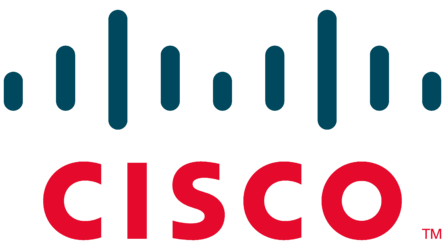Cisco
- Members
An American multinational technology conglomerate corporation headquartered in San Jose, California. Integral to the growth of Silicon Valley, Cisco develops, manufactures, and sells networking hardware, software, telecommunications equipment and other high-technology services and products. Cisco specializes in specific tech markets, such as the Internet of Things (IoT), domain security, videoconferencing, and energy management with leading products including Webex, OpenDNS, Jabber, and Jasper. Cisco is one of the largest information technology companies in the world ranking 63 on the Fortune 100.
Activities

|
Anatomy of a Smart City | |
| Showing the connecting fiber of a Smart City with Local Government, Public and Private Utilities and Services, Smart Building Technology, Communicating and sharing of Information to residents, business and the community as a whole with emphasis on security throughout the process. | ||

|
Cascadia Innovation Corridor | |
Municipal, academic, corporate and federal smart city activities are being coordinated across Portland, Seattle and Vancouver BC through the integration of several regional initiatives:
| ||

|
Chula Vista Smart Waterfront | |
| The Chula Vista smart waterfront is a 535 acre joint development by City of Chula Vista and the Port of San Diego – currently the largest waterfront development project on the U.S. West Coast. The development is groundbreaking in its approach to energy efficiency in (1) targeting 50 percent reduction in annual energy use for the development and (2) each building performing at least 15 percent better than Title 24 requirements in the California Building Energy Efficiency Standards. Recognizing the need to monitor and control this new energy infrastructure, the Bayfront project also focuses on the communications network technologies and smart infrastructure solutions that will provide operational efficiency, sustainability, and economic development opportunities for the City. The Project team, led by Black & Veatch, is focused on evaluating the three major components of energy, telecom, and smart infrastructure – determining solutions that will meet the aggressive energy goals and provide a foundational, scalable approach to future communications and smart city applications. | ||

|
City of Schenectady, NY: Enhanced City Services | |
| As part of Schenectady’s Lower Union Street reconstruction Project that started in late 2015, Smart Lights have recently been installed that allow the control of lighting and other sensors to monitor devices as well as provide a small scale Public Wi-Fi deployment. This deployment, activated on June 20th 2017 as Schenectady’s contribution to World Wi-Fi Day 41 , gives residents, and visitors within a 5-block area of State Street (from Broadway to Lafayette) access to the internet and is helping to identify value for further Wi-Fi deployment. 42 Wi-Fi access points also allow the city to control smart lighting and other IoT sensors that help in evaluating the benefits of various accessories. This project is in coordination with additional Wi-Fi access in front of City Hall on Jay Street that is also available for residents and visitors to the city. | ||

|
Connecting Communities with Public Wi-Fi technology and local Tourism mobile applications | |
| Provide areas of Public Wi-Fi for use by residents, employees and visitors while deploying informational mobile application showcasing local businesses and giving real time data for local trolley schedules.
Using technology to collect data which will improve the operation of local governments. | ||

|
Coral Gables Smart City Hub Public Platform | |
| The City of Coral Gables promotes the development of a smart city ecosystem that fosters innovation by bringing together through technology People, Businesses, Organizations, Things, and Systems. By leveraging strategic planning and innovation, the City’s digital transformation and smart initiatives can benefit our citizens with continual improvement to customer service and quality of life. Our smart city plan implements several interconnected and interoperable elements that include a Smart City Hub, Data Platforms, Internet of Things, and a robust and resilient technology infrastructure with high-speed communications. | ||

|
I3 Consortium Action Cluster | |
| The I3 project is creating a tool that will allow independent device owners to directly manage how the data streams from their IOT devices are delivered to applications. Opensource Project software includes support for privacy, trust, and incentive management.
Requirements and proof-of-concepts complete. Consortium management structure in process. Demonstration systems in process. R1.0 beta software in design. | ||

|
Illuminating Smart Cities: Kansas City Runs on IoT Platform | |
| Kansas City, MO (KCMO) and its partners have designed and implemented an IoT platform to develop a smart city network, starting with Kansas City’s streetcar starter line in their Downtown area. Based on this initial site, the team has will implement a model that would make Kansas City the largest smart city network in North America. | ||

|
Smart Transit Hubs - B Smart | |
Pilot a smart street light corridor within a system of transit “super-nodes” developed by transforming current major transit stations into transit hubs (Hubs) defined by:
| ||

|
SmartShuttle | |
| Our second autonomous vehicle pilot will build upon the “lessons learned” from our GCTC 2015 “First Mile/Last Mile” study (GCTC Action Cluster SMOOTH). The City of Columbus was recently named one of the seven finalists in the US Department of Transportation Smart City Challenge. Our GCTC 2016 project will, therefore, concentrate on a scalable and replicable low speed automated shuttle solution for use in the Smart City of Columbus. This automated shuttle solution will use a small (two-seater) electric driverless vehicle with a scalable and replicable software, hardware control and decision making architecture. The eventual aim of the project is pilot deployment in an urban driving environment with low speed vehicles and intersections at/near the outdoor shopping area of Easton Town Center in Columbus. The scalable and replicable approach will enable the easy adaptation of the same system to other parts of the City of Columbus and to other similar pilot deployment sites in other cities in the US. | ||
Details
In April 2014, Cisco announced funding for early-stage firms to focus on the Internet of Things. The investment fund was allocated to investments in IoT accelerators and startups such as The Alchemist Accelerator, Ayla Networks and EVRYTHNG. Later that year, the company announced it was laying off another 6,000 workers or 8% of its global workforce, as part of a second restructuring. On November 4, 2014, Cisco announced an investment in Stratoscale.
Country Digital Acceleration and smart cities
Cisco’s Country Digital Acceleration program is helping cities manage and deliver connected urban services. From inclusive access to smart water systems, Cisco is enabling cities to operate sustainably and meet the needs of their citizens


